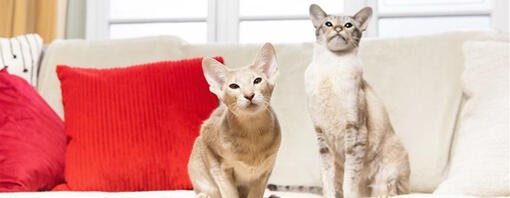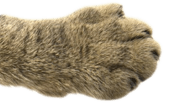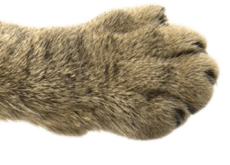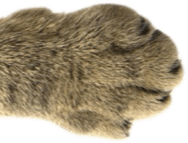Types of Domestic Cat Breeds Found in the UK: Size, Coat and Which one to Choose

Cats come in all shapes, sizes, and personalities, ranging from wild and feral to fully domesticated breeds. Domestic cats, in particular, are the kind you’d find curled up on a sofa and who share our homes. Whether sleek, short-haired breeds or fluffy, long-haired varieties, they come in a range of looks and temperaments. Keep on reading to discover the most popular domestic cat breeds in the UK, with tips to help you find the perfect feline companion.
Most Common Breeds of House Cats in the UK
Big Domestic Cat Breeds: What is the largest breed of domestic cats?
Big domestic cat breeds are known for their sturdy builds, affectionate personalities, and impressive size, often weighing seven kilograms or more. Some have thick, dense coats that require daily grooming, while others have sleek, low-maintenance fur. While these larger cats may need more space and food than smaller breeds, they more than make up for it with their loving nature. However, not all big cat breeds are suited for families with children. Read on to find out more.
Maine Coon
Among these impressive felines, the Maine Coon stands out as the largest, with adults frequently reaching 8 kg, but it’s their friendly and outgoing nature that truly sets them apart. They are great family pets, especially for first-time cat owners and have a thick, even water-resistant coat which requires regular brushing. While they are a fantastic choice for a domestic cat, families should keep in mind that Maine Coons require a safe outdoor space to explore and plenty of enrichment opportunities to stay healthy, happy and active.
Ragdoll Cat
Ragdolls are a popular choice for families looking for a loving and affectionate domestic cat. They weigh between 4.5 and 9 kg and have a long, dense coat that requires regular grooming. This domestic cat breed is incredibly social and enjoys being near their humans, often sticking close by and watching you go about your day. While they thrive on companionship, they’re also perfectly content to spend a few hours alone when needed.
Siberian Cat
These cats are known for their muscular build and thick, weather-resistant coat. Siberian cats typically weigh between 3.5 and 7.5 kg and have a dense triple-layered coat that helps them adapt to cold climates. Despite their size, they are affectionate, playful, and intelligent, making them a popular choice for families. However, they do best with plenty of outdoor space, so potential owners should consider this before bringing one home.Given this need for outdoor access, it's probably worth mentioning building catios and outdoor runs, as these cats are at serious danger of theft if allowed to wander freely, yet they do not do well as purely indoor cats.
Small Domestic Cat Breeds
Small domestic cat breeds are full of personality and don’t take up much space, making them ideal for smaller homes. Despite their small size, many of these cats are full of energy especially when it comes to playtime and affection. Plus, their smaller size often means they may need less food and grooming, making them potentially easier to care for compared to a larger cat. If you want a little cat that’s packed with heart, small domestic cat breeds are definitely worth considering.
Abyssinian Cat
Abyssinians are known for their sleek, long-legged build and energetic, athletic personality, which showcases their agility and grace. These small to medium-sized cats have fine, soft coats with minimal undercoat, meaning they require less grooming. Highly intelligent and active, they need plenty of mental and physical enrichment. Overall, they are considered a great choice for families who want a cat who is active and enjoys play.
Oriental Shorthair
The Oriental Shorthair is known for its sleek, lean body and energetic personality. Adaptable and playful, they thrive on interactive play and require a high level of mental stimulation. Available in a wide range of colours, patterns, and eye colours, they are truly striking cats. However, this breed may not be the best fit for family homes and is better suited to experienced cat owners who have had previous feline companions.
Longhaired Domestic Cat Breeds
Domestic longhaired cats are stunning with their soft, thick coats, but they do require a bit more care. Regular grooming is essential to prevent their fur from becoming tangled or matted, especially during shedding seasons. If you're willing to dedicate some extra time to grooming, a domestic longhaired cat can make the perfect companion.
Persian Longhair
Known for their long, fluffy coats and calm nature, Persian cats require regular grooming and prefer quiet environments. Therefore, while friendly and independent, they are often not the best choice for families with young children.
British Longhair
British Longhairs are known for their gentle nature that are great for first-time cat owners however do require regular grooming. They are also a great choice for a relaxed home environment and are known to be a great family cat.
Shorthair Domestic Cat Breeds
Domestic shorthair cats are super easy to groom, and you don’t have to worry much about matting. While they may not have the fluffy long fur, they still come in a variety of colours and patterns, each with its own unique charm. If you're looking for a cat that's low on upkeep, a shorthair might be perfect for you.
British Shorthair
One of the most popular breeds in the UK, British Shorthairs are known for their sturdy build and short, easy-to-maintain coats. They are laid-back and suitable for families with children of all ages. However, they are active cats that need plenty of enrichment and outdoor space.
Russian Blue
This breed has a thick, plush coat that is short in length. Russian Blues are calm, affectionate, and relatively low maintenance which makes them a great choice for first-time cat owners. However, their preference for a quiet environment means they may not be ideally suited for homes with young, energetic children.
Exotic Shorthair
The Exotic Shorthair, a breed with a short, plush coat, is best suited to experienced owners. This average-build cat thrives indoors in relaxed homes, needing daily grooming. Their quiet, sociable nature and dependency make them excellent companions. They are comfortable being left alone for short periods and make great family cats.
Choosing the Right Domestic Cat Breed for You
When deciding on what breed is right for you, several factors should be considered:
Grooming Needs
- Regular grooming prevents matting, skin issues, and shedding.
- Choose a low maintenance breed if you have limited time or dislike grooming.
- Ignoring grooming needs can lead to discomfort and health issues for the cat.
Activity Level
- Matching activity levels prevents boredom and destructive behaviours.
- Consider if you can provide adequate stimulation for the cat's energy level.
- Active cats require lots of room, plenty of enrichment and games, and a safe outdoor space.
- Laid-back cats may be overwhelmed in busy, energetic homes, especially those with young children.
Temperament
- Select a cat that matches your personality.
- Consider aspects like sociability, independence, and affection levels.
- A shy cat might not be suitable for a loud and energetic family, while a highly sociable cat may experience anxiety when left alone for extended periods.
Compatibility with Children
- Some breeds are naturally more tolerant and gentler with children.
- Choosing a breed that's great for families reduces potential conflicts and stress for both the cat and children, ensuring safety for both.
- Reducing the likelihood of scratches or bites from a stressed cat.
Compatibility with Other Pets
- It is important to make sure that all your pets are happy and safe.
- Some cats are very territorial, and others are very social.
- Consider the cats compatibility with other pets to prevent potential conflict, and unnecessary stress.
FAQ
The most common type of house cat in the UK is known as Domestic Short Hair or Long Hair. However, among recognised breeds, the British Shorthair is the most popular.
It is fine to keep cats indoors as long as they get plenty of enrichment, exercise and an outlet for their natural predatory behaviours. Indoor cats are generally safer from traffic accidents, arguments of neighbourhood felines and theft. Some breeds are more active, and can find life as an indoor cat frustrating however. For these breeds, building an outdoor 'catio' or run, ideally attached to the house, with different heights, perches, hiding spots and enrichment opportunities, gives them the best of both worlds.
Cats can be very happy indoors if provided with a stimulating environment, including toys, scratching posts, and windows for viewing. Some breeds are more suited to indoor life than others, such as the Russian Blue and British Shorthair.





